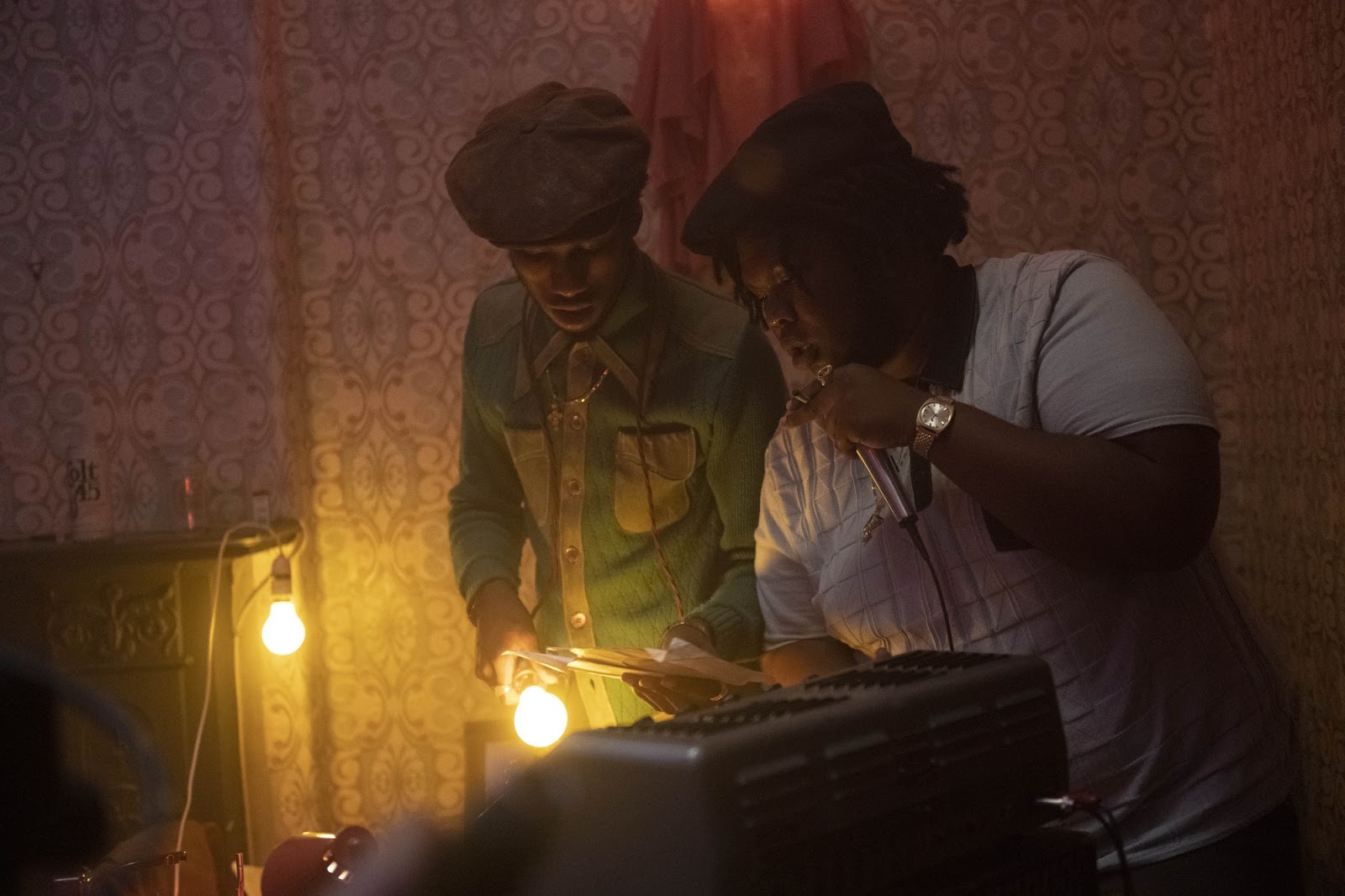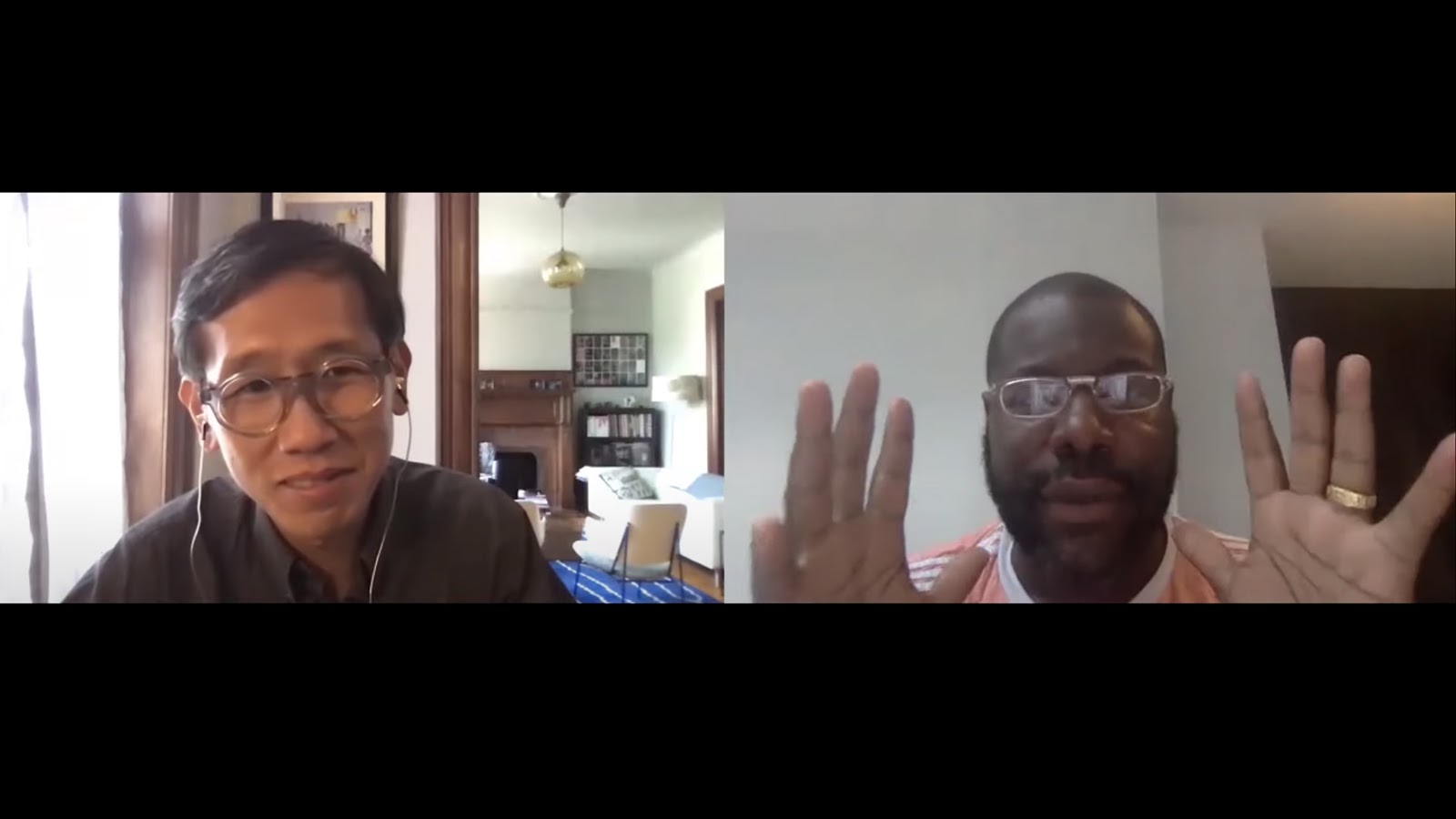Steve McQueen—Black genius, British genius—has created an anthology series of films entitled SMALL AXE, all centered around the West Indian community in London from the 1970s to the ‘90s. LOVERS ROCK, the second film in that cycle, has recently opened the New York Film Festival. McQueen’s gambit—the film’s fervent ambitions, the back-to-back bricolage quality—will be ignored within this review, though McQueen is releasing the accompanying four films all between November and December.
LOVERS ROCK is, simply, a party. Its arc from preparation, to full swing, to whatever a morning-after may entail: passion, regret, trauma, anything from that whole menu. The year is 1980. Music is everything to this movie: the beat, the text, the subtext, the texture, and we measure that in the attendees belting “Kung Fu Fighting,” in Sister Sledge’s “He’s the Greatest Dancer.”

…..yeah……
You enter the movie like a snapping-to, a liquid attention. I’m about two weeks out from screening this and the details in the brain are almost wholly tactile. I remember the carpets; I remember women filing in and out of the kitchen, stirring goat curry, pouring glasses of wine. I remember men rolling up to the party and setting up speakers; I remember joints being prepared, passed. I remember the crates of records taken out, sifted through, considered, and cared for. I remember the Grenada poster rolled up before the party; I remember the crazy reds flashing through the busses taking the partygoers to the house, and the folks fussing with their boombox in the back.
The party starts. The music is perfect. Steve McQueen’s music is perfect. Dub, reggae, soul, all chopped and cut into each other at perfect proportions. It’s 10 minutes into the movie where it carries me to the edge of joyful tears. This movie is less of a story and more like a fluid system; the characters are carved less out of a singular individual psychology and more out of a swiping, blurring, contorting ride. I don’t remember the characters’ names but there’s no way I forget those faces, all the hopes and reactions and implications scrawled on ‘em.
I’ve never seen the work of Antiguan cinematographer Shabier Kirchner before this; his other work includes SKATE KITCHEN and the rest of this SMALL AXE cycle. Kirchner has cited Wong Kar-wai and Hou Hsiao-hsien’s liquid aesthetics as influences on the camera here. If you don’t know them, none of that shit is important other than it’s all swoon, all the time. It’s moviemaking aimed at the kneecaps, moviemaking describing and embodying the physical, social nature of art.

McQueen virtually introducing LOVERS ROCK with NYFF director of programming Dennis Lim.
There is menace at the fringes of the frame. One male partygoer arrives, clearly with heightened expectations compared to everyone else. It ends badly. This is a counterpoint—a tragic counterpoint, an admission that the greatest pleasures carry the greatest risks. You think about what Audre Lorde would say, about how the erotic has been misnamed by men. The movie isn’t overpowered by this because McQueen, who, after a perceived stumble with WIDOWS, has whittled his craft down to the essentials of the body. LOVERS ROCK has equal commitment to the physical as his Best Picture winner 12 YEARS A SLAVE, but with pleasure pitched at the level of that film’s horror. McQueen has located, somewhere, somehow, a vision of genuine grace: the carnal kind, the incandescent kind, the kind that ducks eye contact, avoids speeches, but sweats off walls.
LOVERS ROCK is the sway of a body and the promise—or the threat—inside a glance. It’s thought, and it’s sex, and it’s cinema—it’s cinema—it’s cinema.















Comments